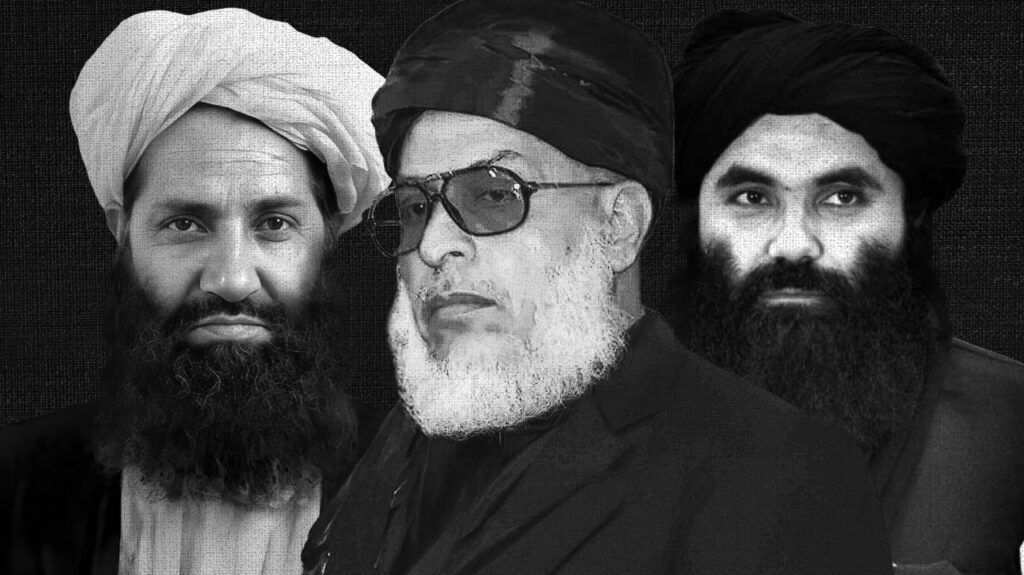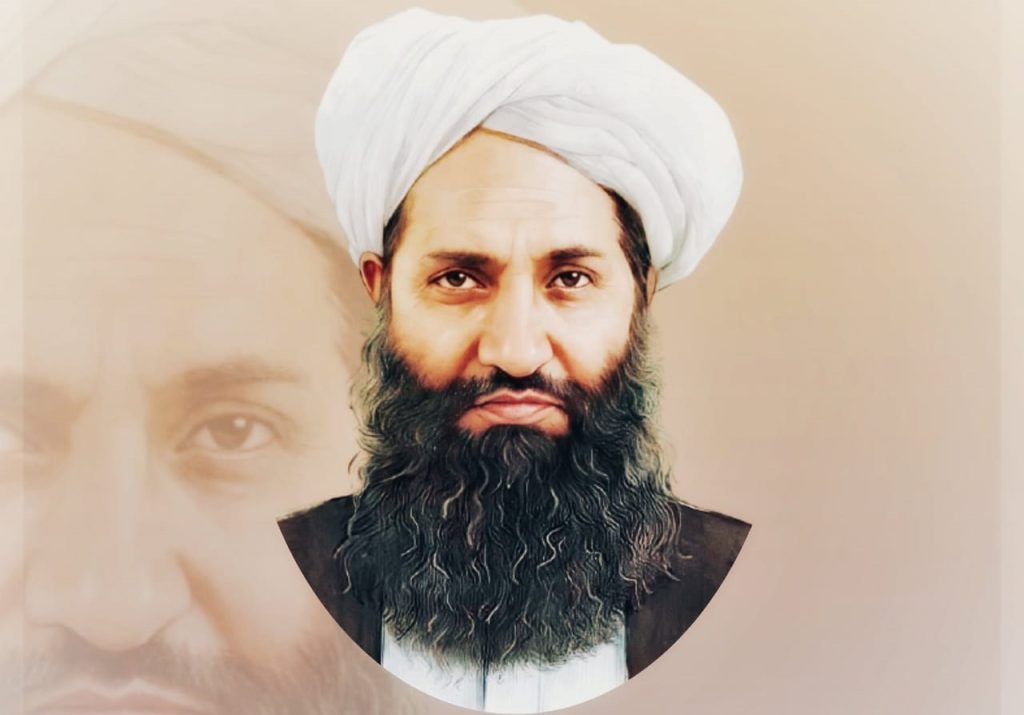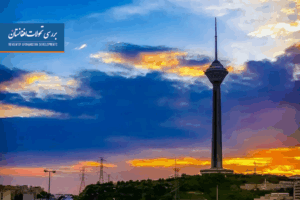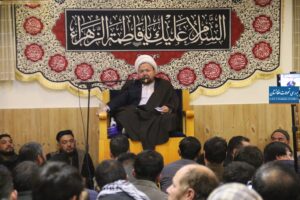Review of Afghanistan developments
This year, as in years past, Mullah Haibatullah Akhundzada, the Taliban leader, released an Eid message on the eve of Eid al-Fitr. However, the format and style of this year’s message differ from those of previous years.
In his message for Eid al-Fitr this year, the Taliban leader has meticulously referenced verses from the Holy Quran and the hadiths of the Prophet to substantiate his topics. Each subject is supported by these texts, which are consistently cited as authoritative evidence throughout the message.
Within this message, the Taliban leader discussed several topics that underscore his worries and opinions about Afghanistan’s national and global issues.
Maintaining unity and integrity
Mullah Haibatullah Akhundzada began by congratulating the Muslim community on Eid al-Fitr and highlighting the significance of fasting and the holy month of Ramadan, subsequently addressing the crucial matter of upholding unity and integrity among Muslims.
The leader of the Taliban claims that the core function of unity and solidarity is to ensure security, which he deems the greatest success of the government. He supports his position by citing verses from the Holy Quran and Prophetic hadiths that advocate for unity and solidarity. Moreover, he considers unity and consensus to be the foundation of success and respect, warning all to be cautious of the deceptive strategies employed by their foes.
In this section of the Eid message, Mullah Haibatullah Akhundzada stated, “We must enhance our unity and solidarity, which are crucial to our success and honor. It is essential to remain vigilant against the plots of our enemies and to firmly uphold our Islamic system and Sharia sovereignty in all areas, ensuring that Afghans stand united under this system.”
The Taliban leader has made efforts to invoke verses from the Holy Quran and the Prophet’s hadiths to frame internal opposition against him as a form of hypocrisy, division, and susceptibility to enemy plots, categorizing these attitudes as un-Islamic and antagonistic to the principles of faith and religen. In this context, he has referred to verse 46 of Surah Anfal, which states: “do not dispute with one another, or you would be discouraged and weakened. Persevere! Surely Allah is with those who persevere.”
The Taliban leader’s insistence on preserving unity and integrity arises from recent reports of discord among certain officials within the Taliban government, particularly involving the leader himself. Through this communication, he aims to convey the seriousness of his concerns and the potential negative outcomes stemming from these disagreements.

Emphasis on promoting virtue and preventing vice
The leader of the Taliban further emphasized the importance of the institution dedicated to promoting virtue and preventing vice, citing Quranic verses as supporting evidence. He highlighted the decline in criminal activity within society as a success attributed to this institution, asserting that the prevalence of wrongdoing has diminished due to its efforts.
Mullah Haibatullah Akhundzada has urged all officials, appointees, and citizens to collaborate with this institution. The Taliban leader’s insistence on fostering cooperation between officials and institutions arises from the observation that certain government entities have not effectively enforced the laws and directives of the Encouraging Good and Forbidding Evil institution, a situation that the Taliban leader finds intolerable.
Afghanistan Economy
The economic development of Afghanistan is another topic that Mullah Haibatullah Akhundzada has discussed in his Eid message. In this portion of the message, it is emphasized that substantial efforts are underway to carry out hundreds of both large and small projects each year, focusing on development and reconstruction. This includes the construction of roads connecting provinces, the expansion of trade with foreign countries, and the increase of exports. Notable progress has been made in these endeavors, with major initiatives launched. Furthermore, there are ongoing efforts to reduce unemployment and improve the economic conditions through the extraction of minerals.
In other sections, the Taliban leader’s message serves primarily as advice, but in the economic part, the government’s actions are referred to as notable achievements. It appears that the motivation behind this segment of the Taliban leader’s message stems from the significant media propaganda opposing the Taliban government in recent months. This propaganda has aimed to illustrate the Afghan economy’s situation as grim after the United States halted its aid.
It appears that the motivation behind this segment of the Taliban leader’s message stems from the significant media propaganda opposing the Taliban government in recent months. This propaganda has aimed to illustrate the Afghan economy’s situation as grim after the United States halted its aid. This conjecture is supported by the concluding section of Mullah Haibatullah Akhundzada’s message, which asserts that “individuals should not fall for the propaganda disseminated by biased groups and intelligence agencies that aim to dishearten them or propagate fears regarding poverty and economic issues.”
Foreign relations
Mullah Haibatullah Akhundzada has highlighted another significant matter concerning the government’s foreign relations with the global community. In this context, the Taliban leader categorizes countries into two distinct groups. The primary group includes Islamic countries that he aspires for his government to cultivate strong and favorable ties, rooted in the concept of Islamic brotherhood. The second group consists of the other countries worldwide, with which favorable relations are contingent upon their adherence to the principles of respecting the beliefs and values of the Afghan people and avoiding interference in Afghanistan’s internal issues.
In this segment of his message, the Taliban leader, avoiding the mention of specific countries, asserted, “do not interfere with our stability, security, and progress.” This statement may be seen as directed towards Western countries that have criticized various laws enacted by the Taliban government and have urged for their reformation.
Palestine
In his Eid message, Mullah Haibatullah Akhundzada distinctly addresses the Palestinian issue, stating that “The Palestinian issue is the issue of the entire Islamic world.” He cites verse 75 of Surah An-Nisa, which encourages jihad for the sake of God to aid the oppressed. The Taliban leader views the support of Palestine as a religious obligation for all Muslims.
The leader of the Taliban has denounced the violent assaults of the Zionist regime on the Palestinian population and expressed solidarity with the rightful aspirations of the Palestinian people. He has also called upon other Islamic countries to provide assistance to the Palestinians to the best of their capabilities.
The Taliban leader’s strong focus on the Palestinian cause and unwavering support for the Palestinian people demonstrate that the issue of Palestine and the opposition to the Zionist regime are integral to the Taliban government’s steadfast foreign policy principles, which it has maintained without compromise under any circumstances.
Emphasis on Hanafi jurisprudence
A notable point of critique in Mullah Haibatullah Akhundzada’s Eid message is his prioritization of Hanafi jurisprudence. He mentioned that “the Islamic Emirate has ordered all courts to implement Sharia in line with Hanafi jurisprudence.” This is particularly significant in light of the fact that between 20 and 25 percent of Afghans are Shia, suggesting that the Taliban leader’s emphasis on Hanafi jurisprudence in the legal system effectively marginalizes the rights of the Shia community.
Following the establishment of the second Taliban government, the Shia population has maintained a level of tolerance towards the government while actively seeking recognition of their rights through multiple avenues. In a recent event at the Loya Jirga Hall in Kabul, a large gathering of Shiites demonstrated their support for the government and presented their demands. But unfortunately, none of these requests have been fulfilled thus far. The removal of Shiite scholars from the Provincial Ulema Council, especially in predominantly Shiite provinces like Daikundi, exemplifies the Taliban government’s efforts to omit the Ja’fari jurisprudence.
Neglecting to include fundamental issues
In his Eid statement, the Taliban leader omitted significant matters, including how to navigate the challenges posed by the caretaker government, the need for a basic legal structure, the collective demand for girls’ education, and strategies for managing opposition from the Taliban’s critics.
Conclusion
In general, From Mullah Haibatullah Akhundzadeh’s message delivered during Eid al-Fitr, it can be deduced that his primary worry in the domestic context is the escalating internal opposition, which has been increasing since the latter part of last year (2024). Thus, the core of his message highlights the necessity for unity and cautions against hypocrisy, which he perceives as a consequence of the enemy’s plots.
Within the context of foreign relations, the message conveyed by the Taliban leader is distinctly peaceful. He advocates for strong ties with Islamic nations, rooted in Sharia and the concept of Islamic brotherhood, and asserts that these relationships should be unconditional. Moreover, he has called upon other countries to engage in fruitful and beneficial partnerships with the Afghan government, contingent upon the observance of particular principles and criteria.
A further conclusion that can be drawn from this message is the Taliban leader’s strong commitment to the application of Sharia law, which has not garnered favor among Western countries. This includes a particular emphasis on promoting virtue and preventing vice.

















